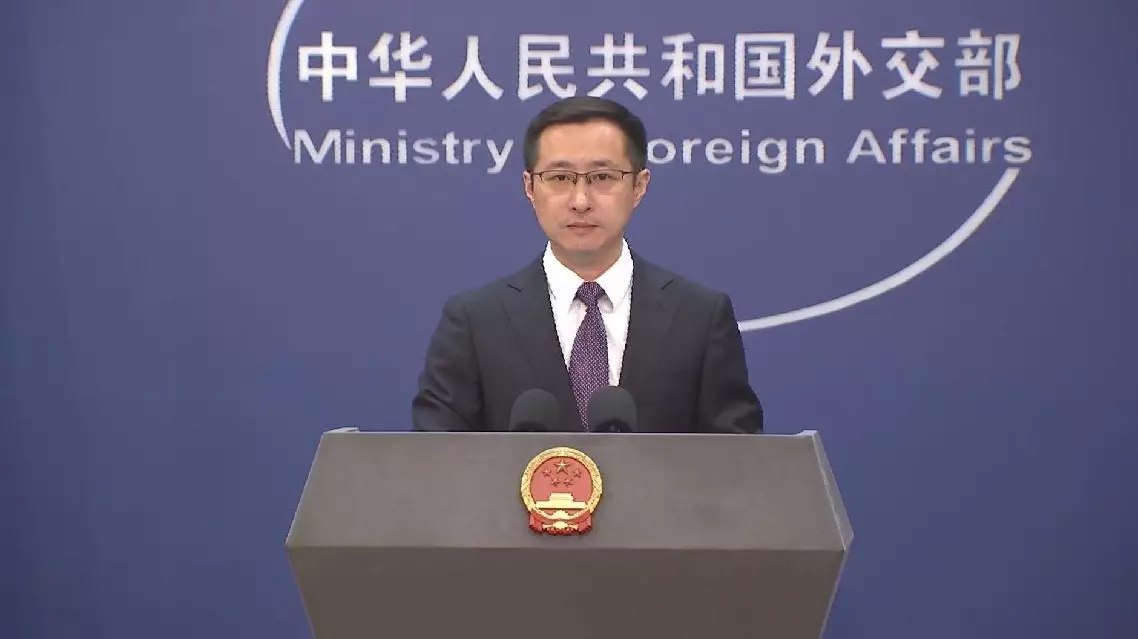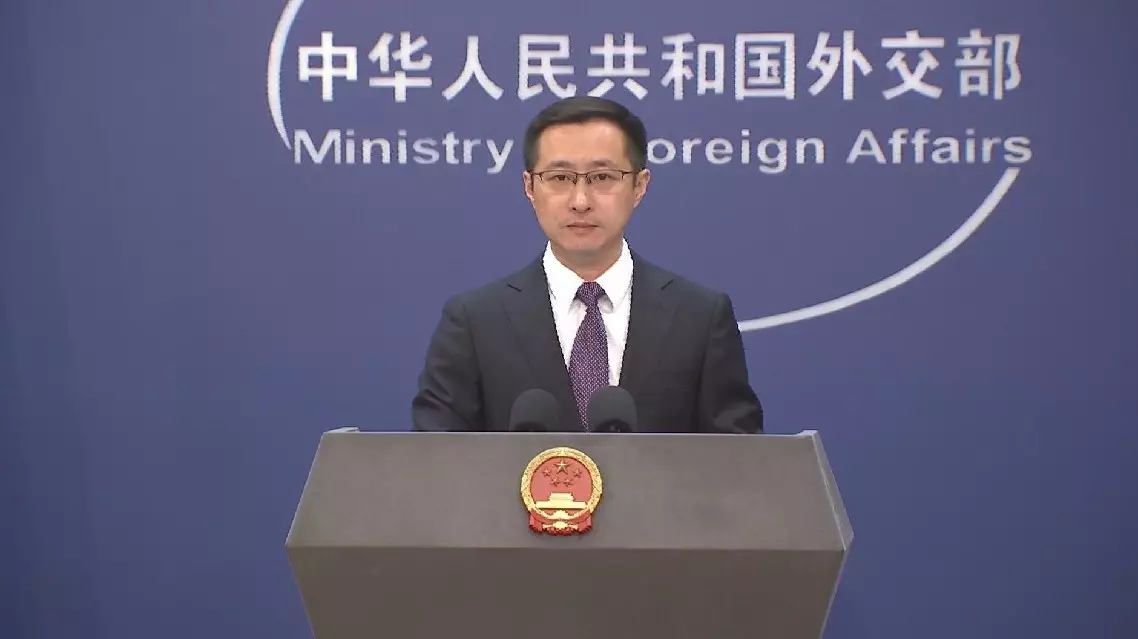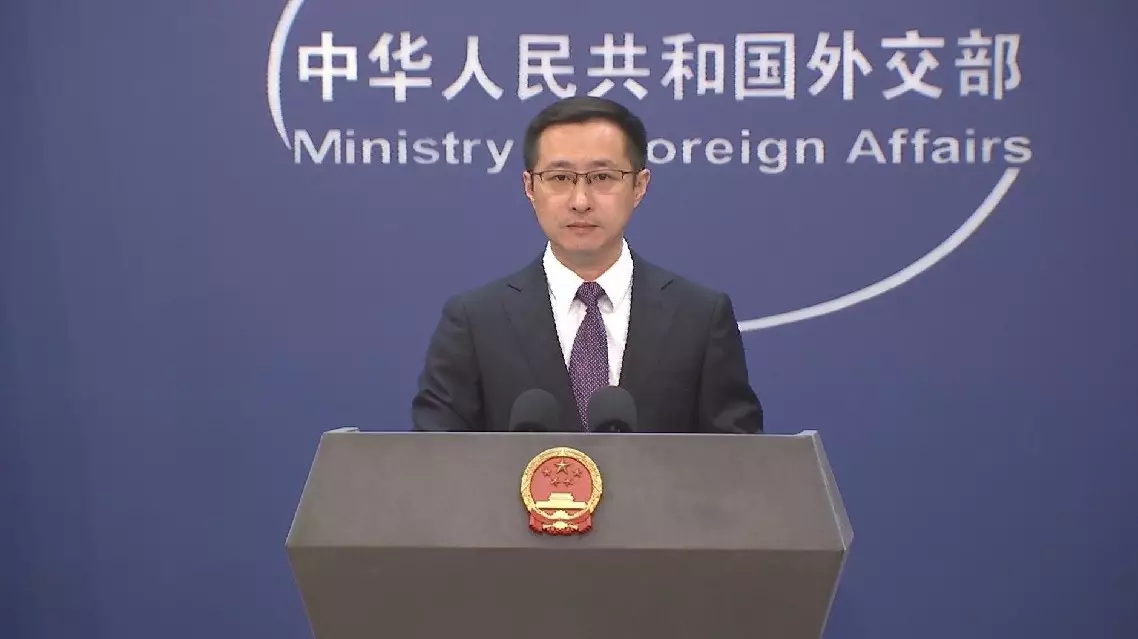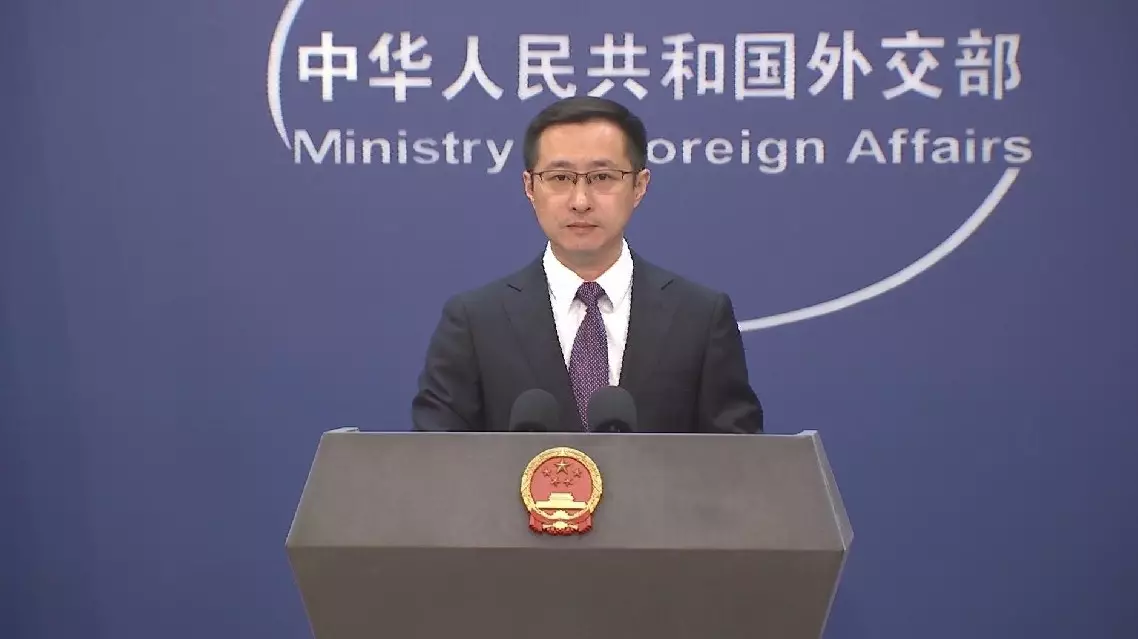China urges NATO to stop creating tensions in the Asia-Pacific region, and peddling Cold-War mentality and bloc confrontation, said Chinese Foreign Ministry spokesman Lin Jian on Monday.
Lin made the remarks at a press briefing in Beijing when asked to comment on the reports that Japan, South Korea, Australia and New Zealand will sign an agreement with NATO to enhance cooperation in the Asia-Pacific region.
"As a Cold War legacy and the world’s biggest military alliance, NATO claims itself to be a regional defensive alliance on the one hand, but on the other hand keeps breaching its boundary, expanding its mandate, reaching beyond its defense zone, and stoking confrontation, which reveals its deeply embedded Cold War mentality and ideological bias. This is the real source of risks threatening global peace and stability. NATO should stay within its role as a regional defensive alliance, stop creating tensions in the Asia-Pacific, stop peddling Cold War mentality and bloc confrontation. NATO should not try to destabilize the Asia-Pacific after it has done so to Europe," said Lin.

China urges NATO to stop creating tensions in Asia-Pacific region: spokesman

China urges NATO to stop creating tensions in Asia-Pacific region: spokesman

China urges NATO to stop creating tensions in Asia-Pacific region: spokesman

China urges NATO to stop creating tensions in Asia-Pacific region: spokesman
The population of golden-haired monkeys, or snub-nosed monkeys, at a reserve in southwest China's Yunnan Province has been steadily increasing as conservation authorities adopt new technologies to protect wildlife and boost biodiversity.
The 2,821-square-kilometer Baima Snow Mountain National Nature Reserve sits in the core zone of the Three Parallel Rivers of the Yunnan Protected Areas, a UNESCO World Heritage Site. The reserve stands as an exemplary model for the province's efforts to protect the Yunnan snub-nosed monkeys, an endangered species unique to China.
New digital technologies are playing an increasingly vital role in this initiative. Among them is a set of weight scales readable by remote control, which were added to the national nature reserve this year to more effectively monitor the health status of the monkeys.
A total of 11 new baby monkeys were born this year, said staff, adding that their current weights are within the normal range and they are all in good health.
In addition to monitoring the monkey's weight changes, they collect and detect the feces of the primates every season to learn about their physical condition, said Lai Jiandong, head of the wildlife rescue station at the reserve.
Conservationists also use cutting-edge advances to collect exhaustive data on the monkeys' habitat.
"The technology we are utilizing is laser radar, and its advantage is that it can create a three-dimensional reconstruction of the Yunnan snub-nosed monkeys' habitat. This enables us to assess the habitat quality of the monkeys over a larger area, compared with traditional remote sensing methods, which rely solely on imagery or ground-based manual surveys. The traditional methods cannot reflect the three-dimensional habitat of the Yunnan snub-nosed monkeys," explained Yang Haitao, an associate researcher at the Institute of Remote Sensing and GIS under Peking University.
This year, the nature reserve has also reintroduced 40 Yunnan snub-nosed monkeys to the wild in order to promote genetic exchange. The group of 40 Yunnan golden hair monkeys includes three families and one group of males, with the youngest being just three months old.
Data showed that the Yunnan snub-nosed monkey population in the Baima Snow Mountain National Nature Reserve has increased from nearly 500 individuals when the nature reserve was established in 1983 to roughly 2,500 individuals at present, making up 65 percent of the total population of the species in China.
Dubbed "elves of the snow mountain", Yunnan snub-nosed monkeys live in the mountainous forests of Yunnan and the neighboring Tibet Autonomous Region. They are listed as national first-class rare and endangered protected species in China and as vulnerable on the International Union for Conservation of Nature (IUCN) Red List.

New technologies help monitor endangered snub-nosed monkeys in Yunnan














